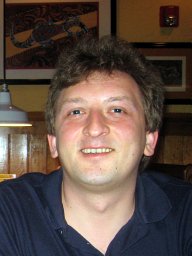Magnonic Second Sound
The second sound in solid state physics is a fascinating thermodynamic phenomenon manifesting itself as a wave-like (in contrast with diffusion) propagation of energy in a gas of quasi-particles. So far, the second sound has been studied - both theoretically and experimentally - only in a gas of phonons, which can be considered as a thermodynamically closed system in thermal equilibrium. Here, we present a general theory of second sound for thermodynamically open quasi-particle gases, which can exchange energy with the environment. We show that the energy exchange leads to nonlinear dispersion relation for the second sound and absence of diffusion heat conduction regime. The developed theory is compared with the experimental results on second sound excitation in a quasi-equilibrium parametrically driven gas of magnons undergoing Bose-Einstein condensation. The measurements of second sound dispersion provide valuable information about the dynamics of dense magnon gases, inaccessible by other experimental methods.
Date and Time
Location
Hosts
Registration
-
 Add Event to Calendar
Add Event to Calendar
- 1420 Austin Bluffs Pkwy
- Colorado Springs, Colorado
- United States 80918
- Building: Osborne Center for Science and Engineering
- Room Number: A204
- Contact Event Host
-
Dmytro Bozhko
Department of Physics
UCCS - Co-sponsored by UCCS
Speakers
 Vasyl Tyberkevych
Vasyl Tyberkevych
Magnonic Second Sound
The second sound in solid state physics is a fascinating thermodynamic phenomenon manifesting itself as a wave-like (in contrast with diffusion) propagation of energy in a gas of quasi-particles. So far, the second sound has been studied - both theoretically and experimentally - only in a gas of phonons, which can be considered as a thermodynamically closed system in thermal equilibrium. Here, we present a general theory of second sound for thermodynamically open quasi-particle gases, which can exchange energy with the environment. We show that the energy exchange leads to nonlinear dispersion relation for the second sound and absence of diffusion heat conduction regime. The developed theory is compared with the experimental results on second sound excitation in a quasi-equilibrium parametrically driven gas of magnons undergoing Bose-Einstein condensation. The measurements of second sound dispersion provide valuable information about the dynamics of dense magnon gases, inaccessible by other experimental methods.
Email:
Address:Mathematics and Science Center, 146 Library Drive, Rochester, Michigan, United States, 48309

